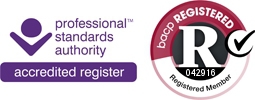How to find a professional therapist offering counselling support for mental health
There are 3 main national bodies and these are NCPS (National Counselling & Psychotherapy Society), BACP (British Association of Counsellors and Psychotherapists) and UKCP (UK Council for Psychotherapists). Any therapist on any of these agencies will have done the required training so I suggest you look there first.
All the qualified therapists on any of the above national bodies will abide by a code of ethics and have insurance.
If you work for a company, you might find that you have a workplace option available. Maybe ask someone in your HR department about it as the service may not be widely talked about. If you have limited funds, don't feel that therapy will be out of your reach. Be open with your counsellor and many will be open to discussing this. I offer 2 lower fee places and work with you on getting the most out of the time working together.
I am based in Chilcompton but also work online. I have ample parking right outside my house and my room is on the ground floor. You may need to think about travelling time to and from appointments so maybe online works best for you.
Even counsellors with exactly the same training will incorporate a bit of their personality into the therapy so their communication style must be a good match for you. If you prefer a slower pace with time to reflect and consider your views, then look for a therapist whose style can reflect that pace. Maybe you feel you need a more direct approach and prefer that style. Don't worry if you haven't got a clue what would suit you as many therapists offer an initial chat or a free 15-20 minute session so you can get a 'feel' if you can work together. If you can, I suggest you make use of it.
If you're looking for someone who specifically works with gender identity issues, it's essential to find a counselor who is knowledgeable and sensitive to the challenges faced by the LGBTQ+ community. Similarly, you may need someone who has knowledge of your culture or your spirituality so always best to ask.
Some therapists post reviews from former clients on their websites and some do not. I prefer not to but that doesn't mean I don't get them!!
Remember, the therapeutic relationship is crucial to the success of the counselling - basically, if you feel safe with the therapist and you feel comfortable to work with them, it will be a good working relationship. It is okay to "shop around" until you find someone because you are investing a lot of your time and effort so make sure you get the best for you. If you feel that your therapist reminds you of a friend who you have had a difficult relationship, you may find it awkward to feel relaxed and open with that person. It's also important to keep in mind that counselling is a collaborative process, and it may take a few sessions to establish a really strong therapeutic alliance. If you ever feel uncomfortable or that the therapy isn't helping, don't hesitate to discuss it with your counsellor or consider finding someone else who might be a better fit. You can also ask your therapist to help you find someone as they very often have knowledge of others around. I am always open to being asked to help find a therapist for others if I am booked up. I am a member of a South West organisation and can put out a request for a specific day/time/fee/location in one email which can save you phone calls and emails approaching counsellors individually.





